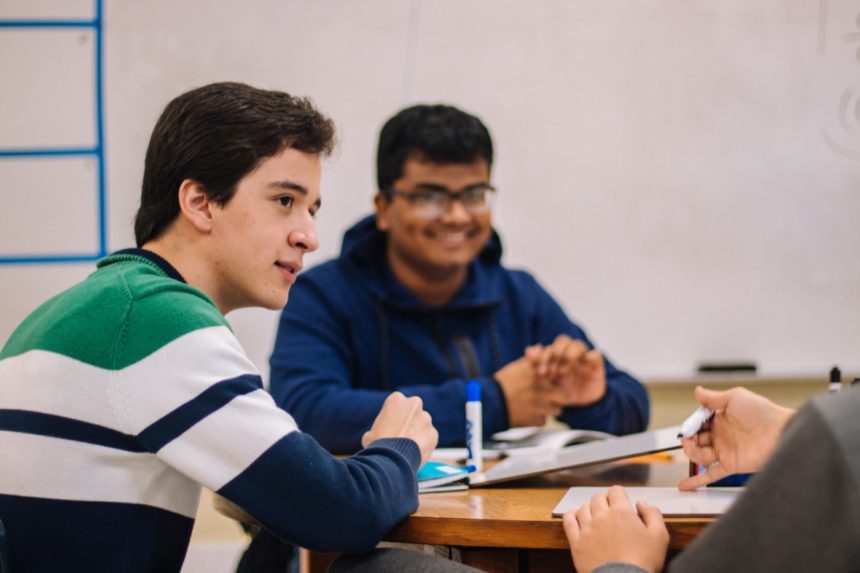How We’ll Work with Children and Young People to Tackle Mental Health

Zinc’s next Venture Builder programme will support 70 talented Founders to create new products and services that improve children and young people’s mental health. In this post Tim Shakespeare, our Research and Innovation Design Manager, explains how involving children and young people in the programme will be critical.
Not only is it important to respect children and young people’s rights to have their voice heard on matters that affect them, it’s also essential in order to make the change that we want to see. To create solutions that are effective, desirable and become successful enterprises, our Founders will need to develop a deep understanding of the experiences of children and young people, and innovate based on their genuine needs, desires, problems and interests.
At Zinc, we’ll support Founders to involve children and young people at every stage of product development, from understanding the problems and developing ideas for solutions through to testing concepts and prototypes. We’ll also encourage Founders to move from consultation (hearing people’s views) towards true co-design (working together and sharing the power to make decisions).
An example of one of Zinc’s ventures is Game Academy. They provide a cutting-edge careers programme that helps gamers get jobs they love. This startup was created through Zinc’s Venture Builder on the mission to unlock new opportunities in places hard it by globalisation and automation. Zinc’s support helped Game Academy build a community of 50+ gamers and generate important insights to design and prototype the service, which now benefits a young audience.
Alongside our general approach to user research, here are 5 principles for involving children and young people that we’ll be sharing with Founders on our programme.
1. Make the process rewarding for everyone
Many children and young people want to have their voice heard and want to see the action that is being taken as a result of their input. We can give young people more agency, and more opportunities to develop skills and experience, if we keep them involved throughout the process — and not just at one standalone moment in time. We’ll encourage Founders to show young people the difference they’ve made, and support them to develop their skills.
2. Engage responsibly
We all have a responsibility to safeguard and protect children from harm, so everyone engaging with children must take steps to learn about their responsibilities such that they know how to act when needed (NSPCC’s resources for voluntary and community groups are also very relevant for start-ups engaging with children). Beyond this, engaging with children and young people responsibly includes ensuring they fully understand what they’re being asked to do and why, and working to make it a positive experience.
3. Engage with underrepresented groups
All young people should feel like they belong regardless of their sexual orientation, gender, ethnicity, age, abilities, background, etc. Young people should feel able to be their authentic selves, feel like they matter, that their ideas matter, and that they can make a difference.
People who tend to be underserved by existing products and services often have the greatest needs. Not every young person will feel empowered to take part in research and innovation activities, and it’s important that we put greater effort into reaching and working with such groups. Young Minds’ participation toolkits provide great advice for involving young people experiencing extra vulnerabilities.
4. Create a safe space
Creating a safe space is important in order to make children and young people feel comfortable, and helps to gather more genuine insights. Adults have a tendency to selectively hear and interpret what young people say; it’s important for us to genuinely listen and not make leaps in interpretation based on our own biases. We’ll encourage Founders to create sessions that are appropriate for the age and abilities of the people they’re working with and use creative research and design methods to allow children and young people to express themselves.
5. Be open and authentic
While it’s important to start from where young people are, and engage with them in a way that is appropriate and relevant for them, it’s also important to be genuine and authentic. We’ll encourage Founders to show their passion and desire to make a difference on important problems, to be clear about what they hope to get from young people, and set honest expectations of what they’ll do with what they hear.
If you’d like to share ideas or opportunities to help children and young people have their voice heard as part of Zinc’s Venture Builder programme, get in touch with us at research@zinc.vc.
Join the Zinc community
Stay up to date with all Zinc updates and future posts as part of our fast growing community.
Featured Resources
Impact Report 2023
We started Zinc with the hypothesis that missions are an effective way to attract highly ambitious, talented and experienced groups of innovators, who might not recognise themselves as “classic entrepreneurs” but are ready and able to start a new commercial and successful venture to tackle some of our most pressing societal issues.
The world has overcome the sorts of challenges we face today when it has adopted a mission-based approach to the biggest problems and brought together world-class talent to invent and innovate, e.g: NASA and landing a man on the moon, the LSE blueprinting the British welfare state, or the Gates Foundation aiming to eradicate diseases.
On this basis and assumption, we designed Zinc as a new mission-based Venture Builder — a place where global talent, ‘impact makers’, can join to experiment and develop new solutions to our most pressing societal issues.
To Eliminate Environmental Threats to Our Health
Environmental health threats pose a grave danger to human health and well-being, causing suffering to individuals and communities worldwide. These threats, which include chemical pollution, climate change, and biological hazards, cause acute and chronic diseases and exacerbate existing health conditions.
To protect those we care about, we must tackle the causes of environmental degradation, shield people from the consequences of environmental harm, and, where protection fails, we must mitigate the health impacts they suffer.
This demands action to improve all aspects of our environment: soil, food, air, water, and the built environment. It requires us to focus on every aspect of human health to reduce suffering.
Entrepreneurship and technology are powerful means to tackle these challenges. That’s why we are backing 70 founders to build innovative companies addressing this mission.


